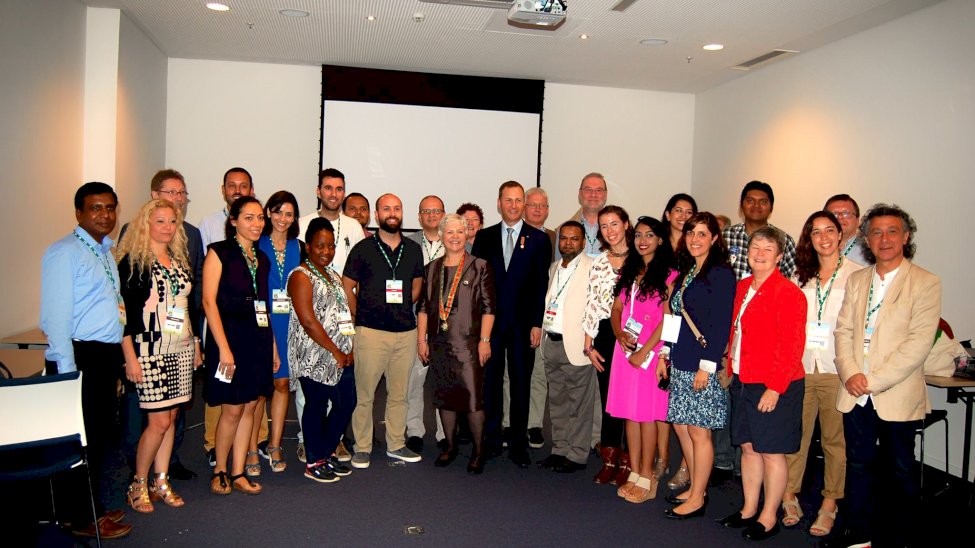The 21st World Congress of Family Medicine took place in Rio de Janeiro, Brasil, between the 1st and the 6th of November of 2016. Wonca Rio 2016 represents a privileged opportunity for the exchange of medical knowledge and clinical skills. Furthermore, as an assumed melting pot of more than one hundred nationalities, it enhances the contact with a scope of multicultural aspects, whether demographic, economic or social. “The only true voyage of discovery (…) would be to behold he universe through the eyes of another, of a hundred others, to behold the hundred universes that each of them beholds”, says an old quote of Marcel Proust. In medicine, as in life, the contact with other realities might be a starting point to question our medical practice - and a humbling experience that improves our empathy skills towards both our colleagues and patients.
My participation in Wonca Rio 2016 was possible thanks to a Wonca Europe Bursary Gran - and represented a learning opportunity, covering the above-mentioned aspects. For the purposes of this report, I will describe in further detail my participation in the panel “Social media: the dust settles, it’s time for a reality check”, I which we discussed the role of social media in health care and, specifically, the advantages and challenges of its meaningful use. This panel was moderated by Harris Lygidakis, and focused on the meaningful use of social media for both health care providers (HCP) and patients.
Regarding the use of social media by HCP, different aspects were discussed: its use as a learning tool (“Stronger together: uniting physicians for learning, collaboration and growth”, by Claire Marie Thomas”), its impact on patient-doctor communication (“Social media and doctor-patient comunication: benefits and challenges, by Nina Monteiro) and the implications of online reputation (“What does Google say about you, doc?”, by Raluca Zoitanu).
Regarding the meaningful use of social media by patients, Viviana Martinez-Bianchi highlighted a social perspective (“The social mission of Family Medicine: patients, practices and population health through a tweeter lens”) and Liliana Laranjo shed light on the use of social media as a tool to promote behavior change.
In my presentation, I focused on the use of social media to promote health literacy. Health literacy can be defined as the ability to make medically sound decisions – and is a consequence of having the tools to find, understand, evaluate, communicate and use health information. Building health literacy is a lifelong process, associated with lower health system costs and increased societal and health outcomes. Social media can potentially improve the users’ capacity to obtain, process and understand health information; in this panel, this concept was exemplified by several case studies and examples (e.g. use of blogs, video and photo sites, Facebook pages and other means of online promotion). The use of social media to promote health literacy has a wider (and much faster) outreach compared to other communication channels. As in everything, with great power comes great responsibility - and HCP must be aware of its partially uncontrollable and non-moderated nature, as well as of the risks of spreading misinformation and disinformation. As part of the discussion of this panel, we explored the areas for action to overcome these limitations. Amongst the emerging concepts, it was pointed out the need to educate our patients in order to be able to critically appraise online information – but also to create trustworthy social media channels, monitored and moderated and that actively involve representatives from the target audiences.
The use of social media in Family Medicine is a new tool – powerful and full of promises and opportunities, but it needs to be guided by clear ethical guidelines following the basic principles of non-maleficence, beneficence, autonomy and justice. Now that the dust settles – and the initial enthusiasm is converted into a pragmatic perspective – there is a need to openly discuss the actual challenges. Its discussion in international conferences is a privileged opportunity to identify the areas of action, in order to pave our way through a meaningful use of technology.
Ana Luisa Neves 14th January, 2017

